There’s a lot to be said about the charm of older houses and its absence from most new builds. Kitchens with painted wooden cabinets, living rooms with rustic brick fireplaces, and bedrooms with Saxony carpets are all nostalgic fixtures of the past.
Of course, older houses stay in constant circulation today by either being handed down in the family or put on the market. But even an older home that didn’t sit vacant for years is still susceptible to pest problems. Let’s explore the reasons why pests love older homes before we discuss the most common critters — and how to prevent them.
Why Do Pests Like Old Houses, Anyway?
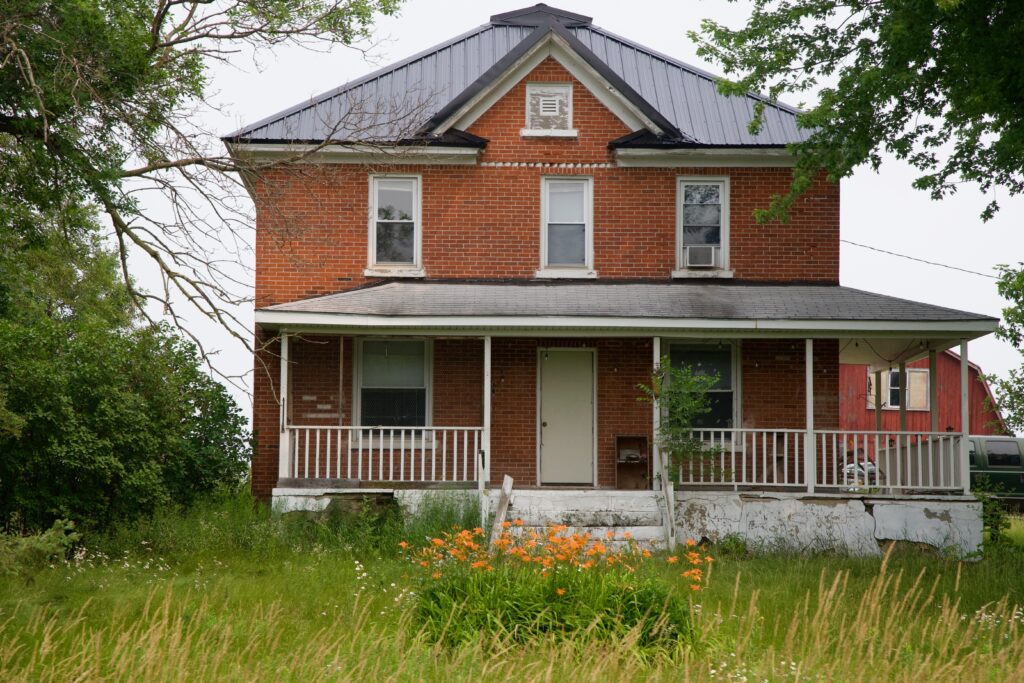
Pests will invade any home they can, no matter the age or location. They can also be active year-round if they live in a habitat that’s sheltered from bad weather. That being said, there are many reasons why pests invade older houses so often.
When pests invade an old house, it’s usually because of one or more of these reasons:
- Gaps and cracks in the exterior
- Worn wooden features, like window frames and doorframes
- Unvisited rooms, like attics and crawl spaces
- Less activity from people if the house was vacant for a while
- Old insulation
- Worn-out weather stripping, door sweeps, and garage door seals
- Moisture damage, especially on wood or the ceiling
- Weathered exterior from age, bad weather, or direct sunlight
Now that we have these reasons in mind, let’s see which pests are the usual suspects of these infestations.
Carpenter Ants
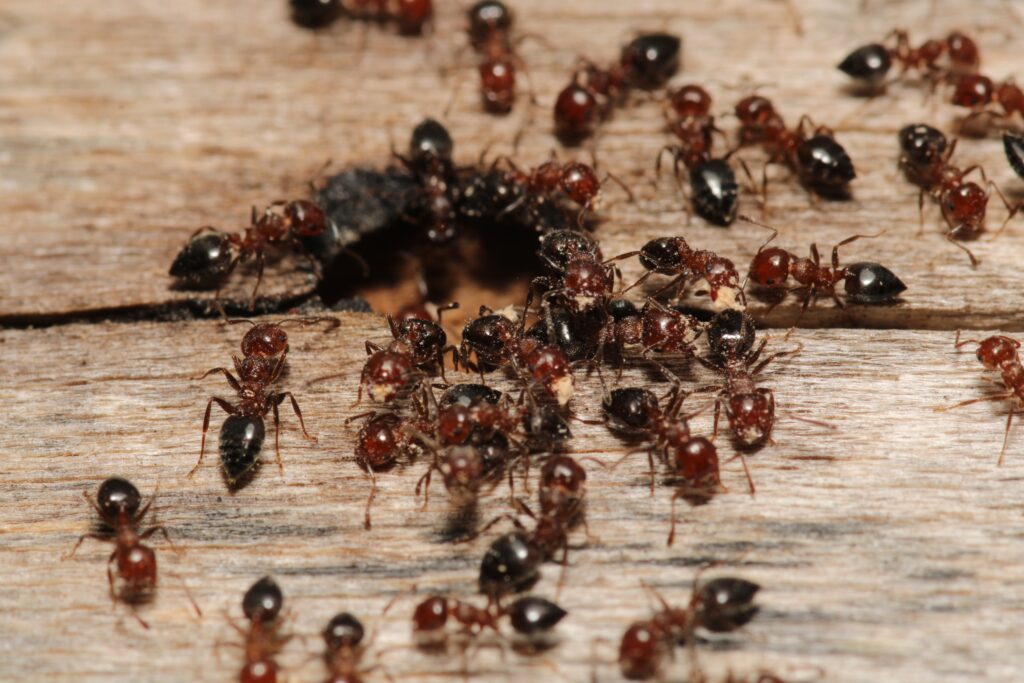
These ants may just seem like another termite — even though they’re, well, ants — but carpenter ants have unique features. For one, they don’t actually eat the wood they burrow into while they craft their intricate tunnels. Carpenter ants have large mandibles (mouth parts) that easily cut through dead or damp wood. While hordes of workers create the tunnels, the others forage in the surrounding areas for food with a lot of protein and sugar.
They have to chew deep enough into the wood to fit their whole colony, which is why carpenter ants will severely damage a home if they’re left alone. The winged swarmers are the only ones who can reproduce, so they fly to new nesting locations to start their own colonies. The queens lay thousands of eggs in their lifetimes, causing the colonies to be anywhere from 10,000 to 20,000 carpenter ants strong!
Roaches
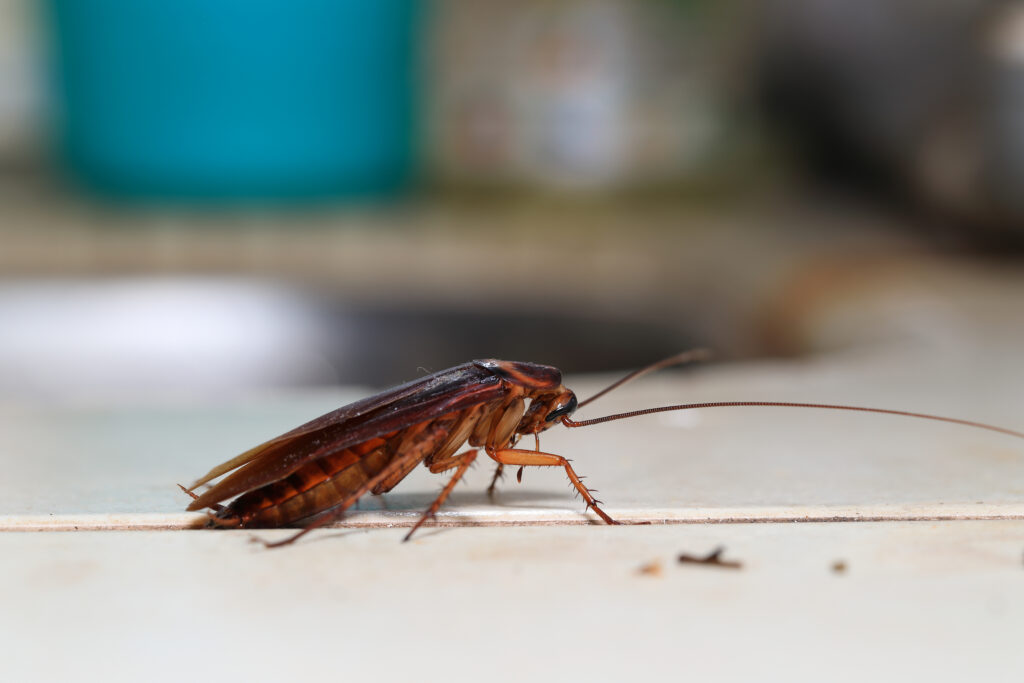
One of the most disgusting creatures on Earth — in our humble opinion — is the cockroach. These pests invade anywhere that they have access to a dark and damp shelter. Roaches fully compress their bodies to fit within the tightest of spaces, so they stay hidden while they reproduce and scavenge for food. Because of this ability, they can squeeze under appliances and in between walls.
Roaches pick up a lot of bacteria and harmful pathogens during their travels through sewers and garbage dumps, so they can transmit diseases to humans that live in the infested home. Roaches prefer to be isolated from humans at all times, which is why they’re active at night. If you see any roaches scurrying around during the day, it’s a bad sign that there’s a huge infestation nearby. They often keep their numbers hidden behind baseboards, inside cabinets, and around plumbing.
Rodents
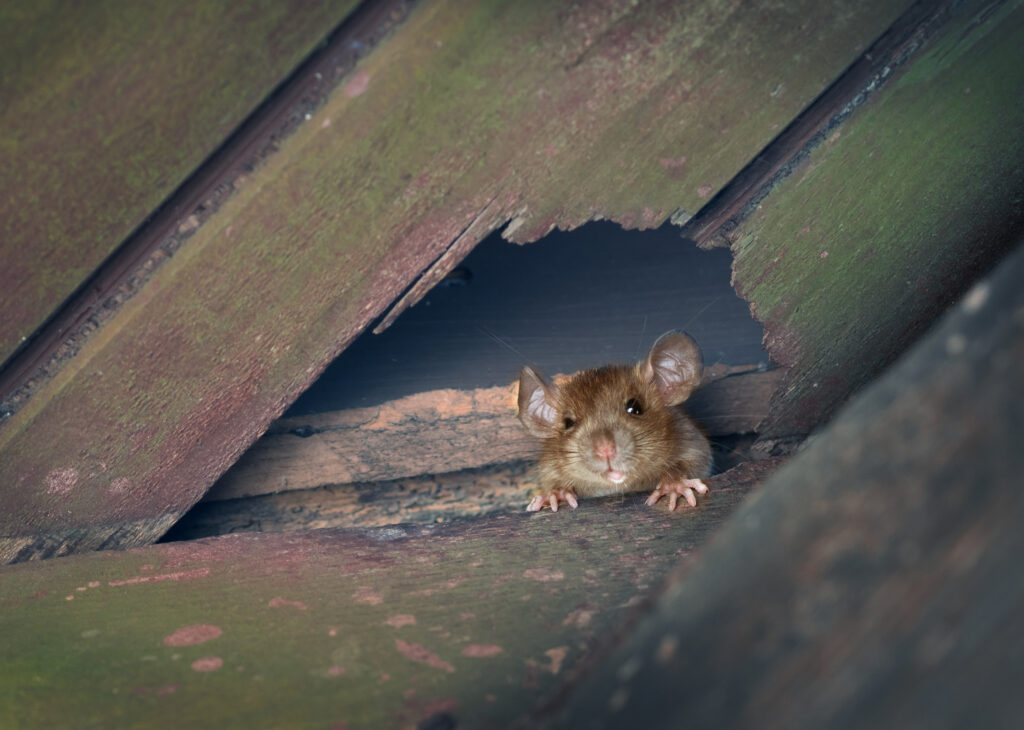
Rats and mice are some of the most common pests in old houses because they’ve been around for so many years — literally! In many cases, a rodent infestation happens because they are already established in that neighborhood. When they have safe nests and unlimited food access, rodents will never leave a place willingly. They will hide in leaf litter, compost, clutter, and huge trees.
Rodents invade homes of all ages, but they have an even easier time with older homes that aren’t properly sealed. Mice squeeze through holes the size of a dime, while rats fit through holes the size of a quarter. They continue to stay in dark, isolated areas once they get inside a home. The attic, basement, garage, and wall voids are commonly invaded by rodents. Since their strong teeth cut through most household materials, rats and mice do serious damage to the house they’re inhabiting.
Spiders
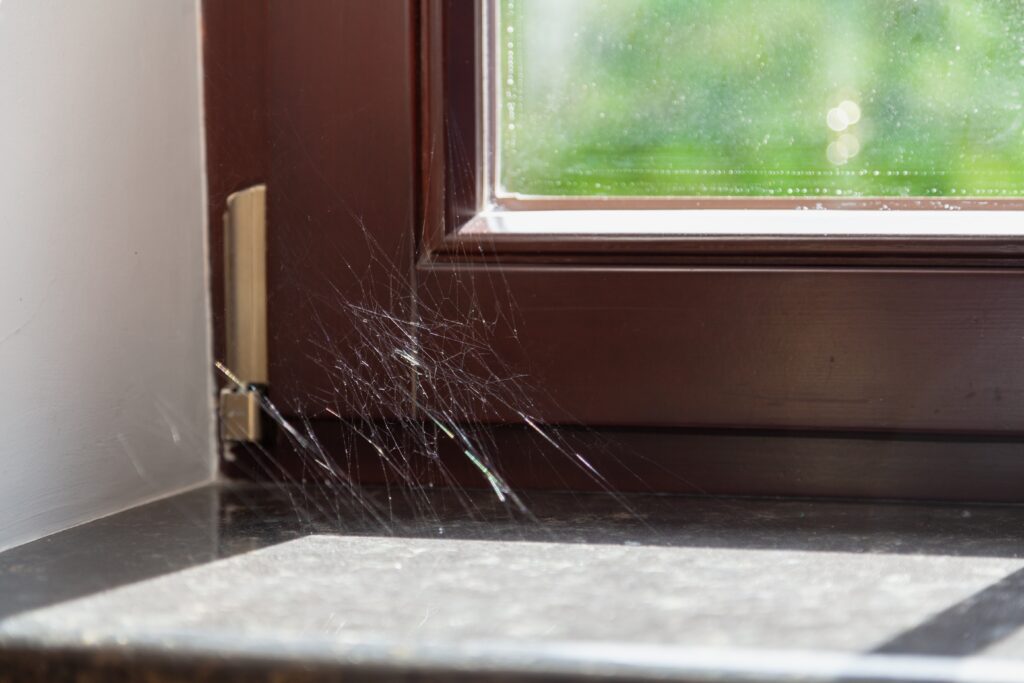
Spiders go where the food is, and once they get there, they won’t want to leave. This is why they’re often seen in areas with a lot of bugs: the spiders have a never-ending buffet! After sneaking in through gaps and holes in the house, spiders prefer to stay hidden from us. They either hide near larger objects (appliances, furniture, etc.) or stay in dark corners. Most house spiders build webs, but some prefer to hunt their prey.
These arachnids can live in any part of the home that gives them easy access to insects. Their favorite areas are usually anywhere in the garage, attic, basement, bathroom, and laundry area. If you see one measly spider in the house, it’s easy to smash the pest with a shoe and be done with it. But finding many spiders in the course of a week? That requires further treatments, which includes controlling the insects that these spiders are after.
Termites
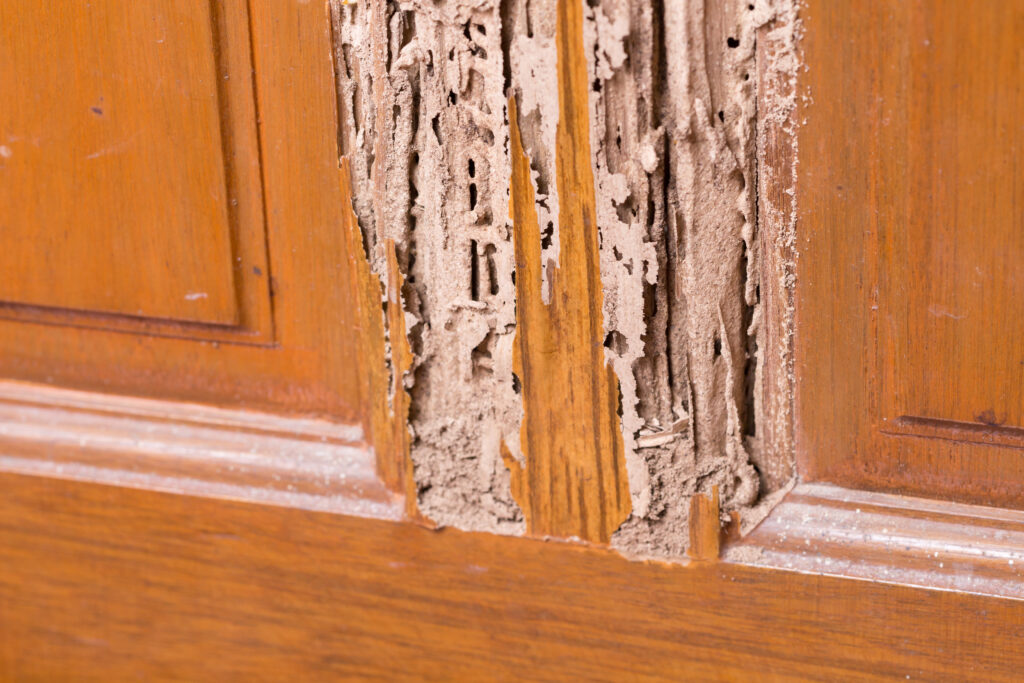
This pest is often at the top of the lists about pests in old homes (seriously, look it up). It makes sense, considering termites are one of the most destructive pests in human history. These pests prefer damaged wood, so they usually invade the underside of the house’s foundation because that wood is moist. Subterranean termites are some of the worst since their nest is kept underground and they work their way up, staying hidden the whole time.
Termites start at the outside of the house, then work their way deeper inside the wooden supports. Their strong mandibles effortlessly chew through old, damaged wood. Since they actually eat the wood, termites always have the energy to continue creating more tunnels and feeding their colony. Old homes are usually targeted by termites when there’s bad flashing on the roof or water damage anywhere in the framework.
Pest Prevention Tactics
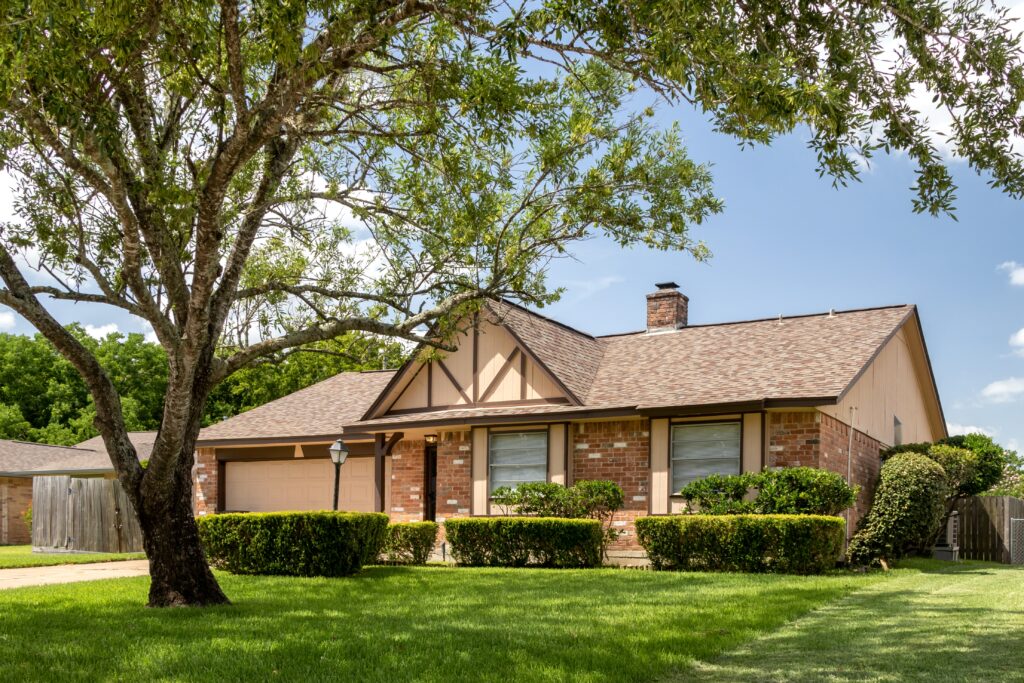
After all of that, the idea of keeping pests out of your older house can feel overwhelming. But trust us, there are plenty of ways to prevent pests and maintain your beautiful home. It’s all about paying attention to the details and cleaning the dated features of the house.
Our tried-and-true ways to prevent pests from invading older homes are:
- Give the floors a good cleaning (mop, vacuum, etc.)
- Seal all cracks and gaps in the exterior with waterproof caulk
- Fix any leaks in the pipes and plumbing
- Repair water damage as soon as possible, especially in the ceiling or walls
- Trim back all plants and tree branches at least 1 foot from the house
- Sanitize all surfaces with an antibacterial wipe or spray
- Dispose of old firewood and replace with fresh firewood
- Clean out any clogged gutters
- Replace any worn insulation, weather stripping, and window seals
- Regularly inspect everything for any new signs of damage
Romney Protects Homes Both Old And New!
Whether your home has existed for 80 years or 6 months, Romney Pest Control is committed to keeping those frustrating pests out of your space for good! Our licensed technicians provide targeted treatments for your specific pest issues, based on what we observe during our thorough inspections. We intentionally use just the right amount of product to avoid leaving excess that become a health hazard. Leave the hassle of pest control to the professionals, and contact us today to learn more about what sets our reliable services apart from the rest!
Citations
Carpenter ants. (n.d.). Pointe Pest Control. Retrieved May 8, 2024, from https://pointepestcontrol.com/services/carpenter-ants/
Common issues found in older homes: What to look for before buying. (2023, August 11). CMS Home Inspection. Retrieved May 8, 2024, from https://www.cmshomeinspection.com/common-issues-found-in-older-homes-what-to-look-for-before-buying/
Farkas, J.T.Q. (2024, April 23). Top 8 common household bugs and how to get rid of them. Today’s Homeowner. Available at https://todayshomeowner.com/pest-control/guides/common-bugs-in-house/ (Accessed May 8, 2024).




